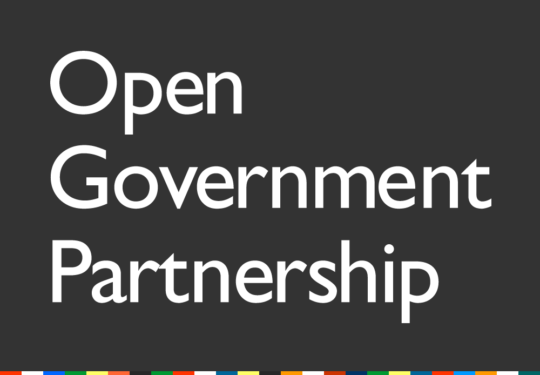The civil society members of Open Government Partnership’s Steering Committee have released a statement on COVID and its risks to open government. Focused on democratic values, the statement is a call to action to governments, donors and international organisations.
To promote the values that define democracy, OGP – including Open State Foundation as one off the signatories – calls on governments to undertake the following:
- Secure the independent role of parliaments. Take all possible measures to ensure that parliaments continue to function, that they are engaged in and fully consulted on decisions about the pandemic response, and that they are fully able to play their oversight and control functions;
- Ensure participatory collaboration and oversight. Establish specific, sectoral, participatory mechanisms to draw on the expertise in society and to ensure oversight of decisions affecting health care, rights and freedoms, and the emergency allocation of resources and funds, including short-term response and recovery packages;
- Proactively publish information and data on the coronavirus situation. Publish situational data, analytical models, scientific findings, and reports used in decision making and justifications of decisions. Develop specific proactive publication and open data plans to address the information needs of the public, media, academia, and civil society during the pandemic.
- Make all emergency public procurement transparent. Ensure that information on pandemic response procurement, including emergency procurement, is made public as soon as reasonably possible, preferably on a centralised portal and as open data. Ensure that company registration data is available so that investigative journalists and civil society watchdogs can play their role in exposing fraud and corruption.
- Allow all stakeholders to follow the public money. Ensure enhanced transparency of public funds related to all dimensions of the pandemic response, including the spending and recovery packages. Structure participatory debate with all sectors of society and business over economic measures.
- Maintain access to information laws. Take specific measures to maintain the functioning of access to information laws and timeframes for responding during the crisis. Where official capacity is limited, prioritise requests related to the current situation, either answering requests and/or proactively publishing responses to requests on a dedicated website.
- Guarantee and respect freedom of expression. Uphold media freedoms and the rights of journalists to seek and disseminate information, including the freedom of movement of journalists. The free flow of information, including on the internet, should be protected, and any measures to counter false information should be done in ways that do not limit free speech.
- Strengthen whistleblower protections. Commit to protecting whistleblowers who come forward in the public interest to expose problems, shortages, fraud, and corruption in public procurement and in the use of funds dedicated to pandemic responses;
- Protect privacy in all tracking. Ensure that any digital tracking and surveillance used to protect health is time-bound and periodically reviewed, is subject to continuous specialist and civil society oversight to protect privacy, and that there is full transparency on use of the data.
- Sustain ongoing Open Government Partnership processes. It is absolutely essential to maintain, to the extent possible, ongoing initiatives to secure and advance open government. Should there be a need to restructure Action Plans in line with the priorities outlined above, this should always be done after full consultation with civil society.
Full statement at the OGP-website
